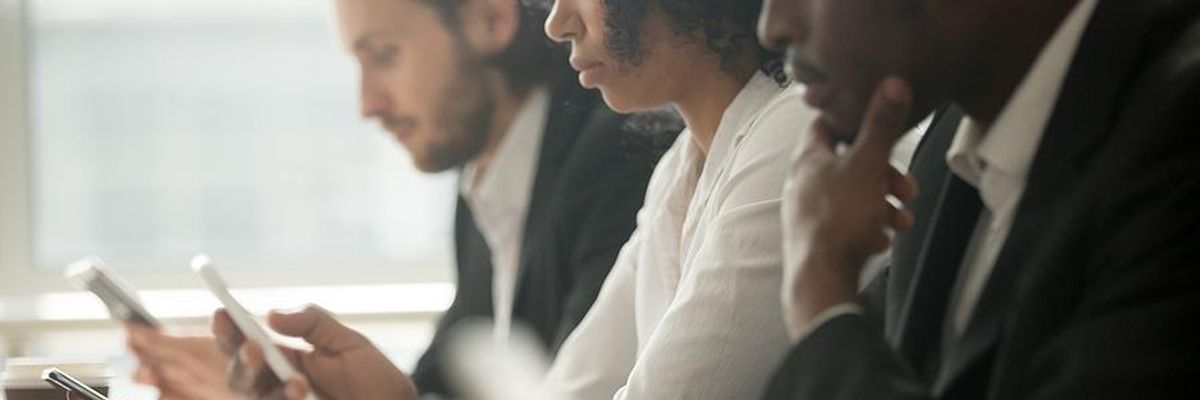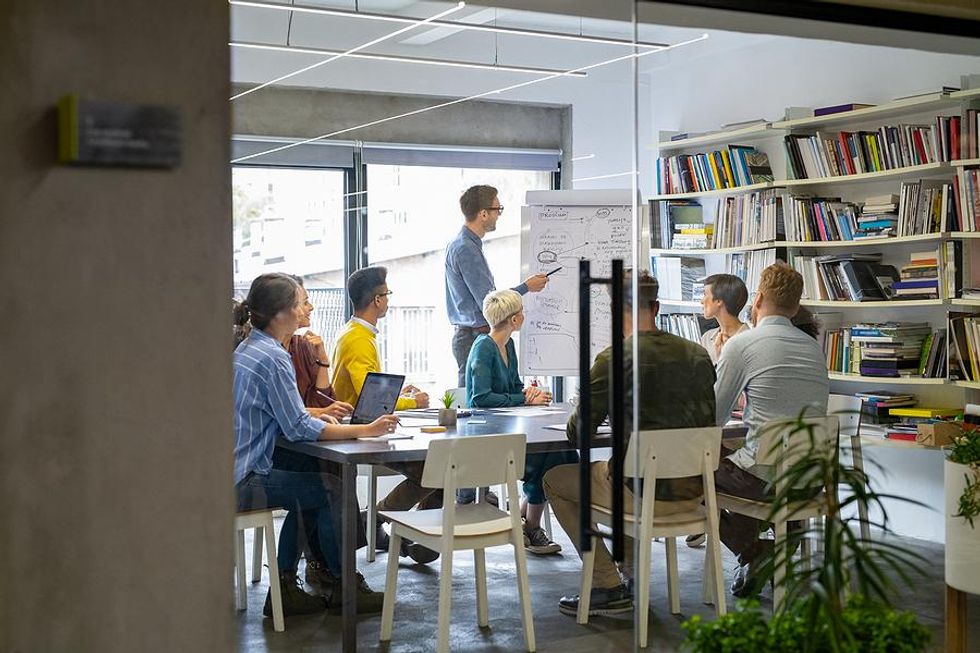What Else Should Be Added To LinkedIn’s "24 Big Ideas That Will Change Our World In 2021" List?

As we reflect on 2020 and how much has changed since the beginning of the year, it's also impossible not to look to the future. What events and ideas can we expect to shape the coming year?
LinkedIn has asked their community of influencers and frequent contributors their thoughts on this, and created a "24 Big Ideas that will change our world in 2021" list from the responses. There are a lot of interesting ideas listed in this article, but it is by no means complete.
So, we asked our community of executives what ideas they thought should be added to the list. Here are their responses:
Dr. Jan Urbahn, Automotive & Shared Mobility Executive

Bigstock
The new year is quickly approaching, and many of us can't wait to put the outgoing one behind us. The following summarizes some trends I'm seeing in my daily work.
Beautiful Niche-on-Niche
With working-from-home came a certain level of individualization. As we were staying at home a lot more, many were thinking about how to make home a more pleasant place. That brought a new trend for individual designs and themes which consumers are willing to purchase, opening the "niche-on-niche" as I call it. I was helping a start-up recently with its business plan and it turns out that even a very small market with a good margin can take a new business forward. My expectation is that we will see new high-quality consumer brands offering beautiful designs on sustainable materials and fabrics as we leave home and rediscover our environment.
Compliance Crunch
Next year will also bring us a new administration, which will bring us a slew of new regulations affecting businesses. Companies will look for a new type of compliance manager, who can serve not only as an interface between governmental requirements and business needs, but who also is a partner in product development, interfacing with the companies' data analysts and AI software engineers. Companies who figure this out early on will be in the pole position to take advantage of the incoming government. A good example is financial services start-up Scratch with its state-of-the-art approach to compliance.
Shared Mobility is Back
Mobility trends shifted this year towards individual mobility; it seemed as if everyone wanted a personal car as a protective shell in this uncertain world. My expectation is that this trend to individual car ownership is short-lived and that shared mobility will be back even stronger than we know it from the past decade. Hyundai for example has been steadily building its Mocean car sharing business during the pandemic, and Uber and Lyft will be even stronger after their restructuring programs this year. Micromobility has also proven that it is an essential service in our cities and is here to stay and grow next year.
Intelligent Elevator
One of the most impactful trends in the next years will be the massive proliferation of artificial intelligence in our daily lives. New chips like the Apple M1 will be able to perform complex computations for artificial intelligence in your local device, away from remote computing centers. This will open up electronic devices to be more individual and responsive to our needs. We won't see the "Happy Vertical People Transporter" (yet), but for example I'm looking forward to next year's Apple Watch with new innovations for health and productivity.
Electric Air
Last but not least, next year we'll be ready to travel again. We'll be back on airplanes! With that will come a discussion about the sustainability of flying and how to improve the current situation. I believe that the technology is available to build an electric passenger airplane with 80-100 seats within the next decade and we will see steps towards realization in the next year.
Dr. Jan Urbahn is an automotive executive with 20+ years of experience in product development, safety engineering, and operations in automotive and shared mobility business. He helped launch 3 new businesses with up to 1,500 shared cars in fleet size. His most recent leadership position is within the shared mobility space, where he helped develop a new EV battery and guided the coronavirus response.
Susan Leys, Healthcare Coach, Consultant, And Career Navigator

Bigstock
We Will Rethink The Effects Of Trauma On Our Nation And Our People
As of this writing, we are close to losing 300,000 Americans as a result of the COVID-19 pandemic. More recently, we are watching over 3,000 people die every day, which is significantly more than the 2,996 people we lost on 9/11.
Remember how much media coverage there was and how many movies and documentaries were made to commemorate some of the most traumatic events over the last 60 years? (JFK's assassination, the Columbine High School shooting, 9/11, Hurricane Katrina, etc.)
Remember feeling that numbness? Frustration? Sadness? Loss?
After 9/11 and the DC Area sniper shootings, I had the opportunity to speak with parents and teachers at different organizations within our community. The one question I received that has stuck with me was from the parent of an elementary school student who asked me, "How do we let our children go to school every day when we don't know if we can keep them safe?"
Trauma has remained an underlying thread of our nation during 2020. It's the transgenerational trauma located in the strong, determined foundation of Black Lives Matter. It fosters the conviction of "Me Too" and the sadness of the deaths of 300,000 of our closest family members, friends, colleagues, and neighbors. It's the disruption of the legacy of American families, communities, and businesses.
To feel "numb" is to avoid the long overdue, all-inclusive, critical conversations we need to have as a nation.
Think this is too big? Too intense? Untimely?
Let's look at some of the things that have happened since the events listed above occurred. Passengers on United 93 attempt to overtake the hijackers of the flight to avoid a more tragic ending to their flight (at the expense of their own lives). Students from the Marjory Stoneman Douglas High School advocate nationally to broaden the conversation about the importance of safety in our schools. Hundreds of nurses, doctors, and clinical teams continue to work in acute care COVID-19 units across the country (again, at the expense of their own lives) to treat our families and loved ones.
The poet and transcendentalist philosopher Robert Frost once said, "The only way round is through," and we owe it to our country to start this conversation.
S.A. Leys is a coach and consultant at https://susanleys.consulting/. They provide coaching, consulting, and training for the healthcare professionals and teams who care for all of us. Follow their hashtag #debriefyourteam on LinkedIn to receive information and strategies to assist your team with coping with burnout and traumatic stress as well as strategies to retain your experienced, high-performing teams.
A lot has changed in 2020. The COVID-19 pandemic is the main force behind the majority of trends we saw this year, and the ones we'll see in 2021. All of the ideas listed above are only the tip of the iceberg. Do you have any more you'd like to add?
Ready to take your executive presence to the next level? Check out Work It Daily's Executive Presence Program today!
- 3 Employee Benefits Trends To Watch In 2021 - Work It Daily ... ›
- 4 Strategies For Upskilling In 2021 - Work It Daily | Where Careers ... ›
- 3 Things All Employees Will Need After COVID-19 - Work It Daily ... ›

 Bigstock
Bigstock Bigstock
Bigstock Bigstock
Bigstock


